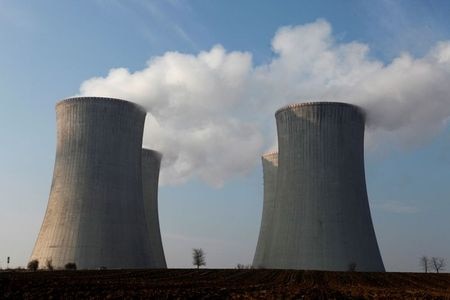Global scramble for Uranium spells trouble for UK’s nuclear plans

City A.M.’s energy editor Rhodri Morgan delves into the sector’s challenges in his weekly column.
The global rush for Uranium, and the consequential price spike, could pose a major headache for the UK’s nuclear power ambitions.
Nuclear power currently provides about 10 per cent of the world’s electricity. And, despite this relatively small market share, – fossil fuels account for 61 per cent and renewables 29 per cent – nuclear energy, and by extension uranium production, is big business.
Over the last week, the price of Uranium concentrate – commonly known as U308 or yellowcake – has risen to a 15-year high of $80.25/lb. The $139/lb high reached in 2017 came shortly after the world’s largest undeveloped uranium deposit flooded, driving panic around short-term supply.
This time around, there’s no flood to speak of. In fact, there is a global uranium mining malaise. In order to be converted to nuclear reactor-ready energy sources, yellowcake needs to be converted and enriched, meaning buyers secure long term contracts for the ore from producers.
Over the years utilities have relied on existing over-supplied inventories until about 2018. This is where utilities – the primary user of uranium fuel – should have begun restocking supplies, but didn’t.
Bram Vanderelst, head of uranium at Head of Uranium at Curzon Uranium, said it was a case of complacency, the effects of which are being seen fully now.
“Utilities started running down stockpiles and bought as they needed it because uranium prices were at multi-decade lows and there was massive amounts of inventory,” he said. “When the market gets tight and stories come out about under-ordering and under-supply, that’s utilities panicking and covering.”
This is the wave uranium is riding, and will likely ride for the next year or two, as utilities rush to market to stockpile during a time when there’s not enough to go around, driving the price even higher.
And to make matters more complicated, for Western states at least, Russia is the sixth largest producer of Uranium in the world. Though Moscow appears to hold the cards, it can’t afford to withhold supplies from the West either as it tries to solidify its positions on reactor construction overseas.
China is also aggressively buying up uranium. Its current total operable reactor net capacity is around 53,286 Megawatt electric (MWe), almost half that of the US. And it has 27,749 MWe capacity under construction, almost four times as much as second-place India.
The required uranium for these projects is likely to deepen the already existing supply shortfall, sending prices, you guessed it, higher.
With no signs that the scramble is easing, the UK should urgently factor in this price surge into its nuclear plans.